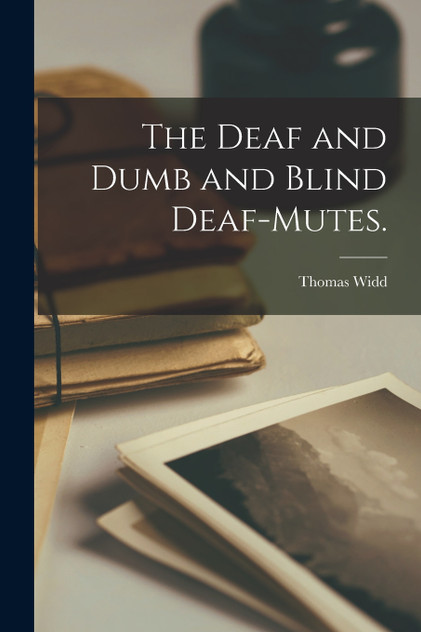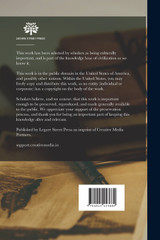

The Deaf and Dumb and Blind Deaf-mutes.
Discover your next great read at BookLoop, Australiand online bookstore offering a vast selection of titles across various genres and interests. Whether you're curious about what's trending or searching for graphic novels that captivate, thrilling crime and mystery fiction, or exhilarating action and adventure stories, our curated collections have something for every reader. Delve into imaginative fantasy worlds or explore the realms of science fiction that challenge the boundaries of reality. Fans of contemporary narratives will find compelling stories in our contemporary fiction section. Embark on epic journeys with our fantasy and science fiction titles,
Explore our new releases for the most recent additions in romance books, fantasy books, graphic novels, crime and mystery books, science fiction books as well as biographies, cookbooks, self help books, tarot cards, fortunetelling and much more. With titles covering current trends, booktok and bookstagram recommendations, and emerging authors, BookLoop remains your go-to local australian bookstore for buying books online across all book genres.
Stay updated with the literary world by browsing our trending books, featuring the latest bestsellers and critically acclaimed works. Explore titles from popular brands like Minecraft, Pokemon, Star Wars, Bluey, Lonely Planet, ABIA award winners, Peppa Pig, and our specialised collection of ADHD books. At BookLoop, we are committed to providing a diverse and enriching reading experience for all.
At BookLoop, we make it easy to buy school textbooks online in Australia for every stage of learning. Our extensive textbook collection includes curriculum-aligned primary school books, secondary school books, and resources for TAFE courses, vocational training, and university studies. Each title is selected for accuracy, quality, and alignment with the Australian Curriculum, supporting teachers, students, and schools across the country. Whether you’re preparing for exams, classroom learning, or distance education, BookLoop’s range of educational books ensures your students have the right materials to succeed.
Empower your teaching with teacher resources and classroom support materials from BookLoop. Our collection includes lesson planning guides, literacy and numeracy workbooks, STEM education resources, and assessment tools that help educators deliver engaging, effective learning experiences. We also stock a wide selection of preschool and early years education books tailored to early childhood development, classroom management, and student wellbeing. Teachers can access everything from professional development books to interactive classroom activities — all carefully curated to enhance teaching outcomes and student success.
Find educational books for students across a variety of subjects including English, Mathematics, Science, History, Geography, and the Arts. BookLoop partners with trusted Australian publishers to provide up-to-date resources that meet classroom requirements and support independent learning. Whether you’re a school administrator sourcing bulk textbook orders, a parent preparing for the new term, or a teacher updating your classroom library, BookLoop is your one-stop online bookstore for all education and teaching materials.
If you have any questions before making a purchase chat with our online operators to get more information.
or find our Questions & Answers